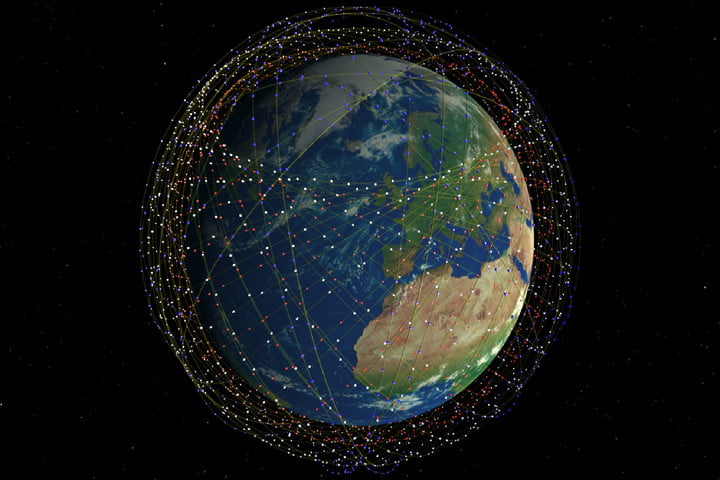Elon Musk receives FCC approval to launch over 7,500 satellites into space — from digitaltrends.com by Kelly Hodgkins
Excerpt (emphasis DSC):
The FCC this week unanimously approved SpaceX’s ambitious plan to launch 7,518 satellites into low-Earth orbit. These satellites, along with 4,425 previously approved satellites, will serve as the backbone for the company’s proposed Starlink broadband network. As it does with most of its projects, SpaceX is thinking big with its global broadband network. The company is expected to spend more than $10 billion to build and launch a constellation of satellites that will provide high-speed internet coverage to just about every corner of the planet.
To put this deployment in perspective, there are currently only 1,886 active satellites presently in orbit. These new SpaceX satellites will increase the number of active satellites six-fold in less than a decade.
New simulation shows how Elon Musk’s internet satellite network might work — from digitaltrends.com by Luke Dormehl
Excerpt:
From Tesla to Hyperloop to plans to colonize Mars, it’s fair to say that Elon Musk thinks big. Among his many visionary ideas is the dream of building a space internet. Called Starlink, Musk’s ambition is to create a network for conveying a significant portion of internet traffic via thousands of satellites Musk hopes to have in orbit by the mid-2020s. But just how feasible is such a plan? And how do you avoid them crashing into one another?
From DSC:
Is this even the FCC’s call to make?
One one hand, such a network could be globally helpful, positive, and full of pros. But on the other hand, I wonder…what are the potential drawbacks with this proposal? Will nations across the globe launch their own networks — each of which consists of thousands of satellites?
While I love Elon’s big thinking, the nations need to weigh in on this one.









